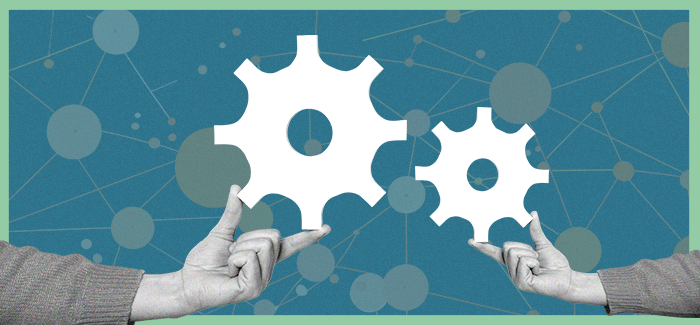Personality types for all business skill sets

Written by David Domzalski

Reviewed by Kathryn Uhles, MIS, MSP, Dean, College of Business and IT

Have you considered how your personality affects different parts of your life? Think about it. From where you live to how you dress to even the type of career you have, your personality pops up in a variety of ways.
However, your personality isn’t just important to you. The traits you possess are critical for companies looking to hire as well. According to a March 2023 New York Times article , personality testing is almost a $2 billion industry.
In fact, employers consider personality so important that 32% of those surveyed in a 2017 Society for Human Resource Management study reported using behavior assessments for executive-level recruiting. That number jumps to 80% for top companies looking to personality tests for boosting employee development, according to a 2008 Psychology Today piece
.
So, what does this mean for you? Well, you need to be an expert in — you.
Personality types in the workplace
Along with self-awareness you need to understand what types of skill sets businesses desire and how your personality fits best. Knowing your strengths can give insight into where your true talents lie.
From there, marketing yourself to potential employers through applications and interviews becomes that much easier.
While no assessment is foolproof, it should give you a benchmark for measuring your interest and aptitude. Let’s see how this can play out by reviewing the top five in-demand business skills within the context of personality types.
Management
As we continue to work in hybrid or fully remote environments, the ability to manage human capital becomes increasingly important.
According to a recent article on LinkedIn : “Effective management is a key driver of employee engagement, productivity and retention — all of which have suffered in recent years.”
That means you should consider where your business personality type fits into management, not only in a particular job but across all avenues of your company.
So, what traits help the most with management? Let’s consider the Myers-Briggs Type Indicator ®, or MBTI®, for this one. You are evaluated on four preference pairs based on how you:
- Direct or receive energy: extraversion or introversion (E/I)
- Take in information: sensing or intuition (S/N)
- Make decisions: thinking or feeling (T/F)
- Approach the outside world: judging or perceiving (J/P)
A June 2013 study of 280 product managers found that this group is high in the “intuition” and “thinking” preference pairs.
ENTJs are one specific MBTI personality type that could make a great product manager. One writer and product designer even calls ENTJs “commanders,” citing their desire for clear guidelines and gift for logical thinking as a natural fit for a product management role.
The MBTI assessment offers plenty of other opportunities for exploration on how to apply your unique traits to your business career.
Communication
This particular business skill greatly influences the others, and it can take many forms. Communication skills include things like making presentations, recording podcasts for your employer and even writing a professional email. Whether you are talking with employees, interacting with customers or leading a project, communicating the right way is key.
My wife and I previously ran a residential real estate sales business together. When we started out, the corporate office encouraged us to take the DiSC® personality test. In the DiSC , D stands for dominance, I for influence, S for steadiness and C for conscientiousness. I learned that I had strong “influence” or “I” tendencies, which meant communication was an asset
. I am naturally persuasive and collaborative, in other words, which are two traits that have served me well in real estate and later in my career.
Customer service
Speaking of working with others, customer service can be one of those business skill sets that provide companies a true competitive advantage. That’s why it’s so crucial to get this right. One key factor that aids in your ability to provide great customer service is your level of emotional intelligence . This includes how you relate to yourself and others.
When considering business personality types, customer service would be a good fit for those making decisions with more “feeling.” In that case, those who are ENFJs could be a natural fit for a role in customer service with INFJs coming in a close second.
Leadership
Leadership is one of those business skills you can acquire at any point in your life and continue to develop. It doesn’t depend on a job title. You can exhibit leadership tendencies throughout your career. Therefore, it’s important to have an understanding of how your typical personality traits fit into traditional and nontraditional leadership opportunities.
Which personality types are suitable for leadership? One of the more obvious is the “D,” or “dominant” type from DiSC. These people take charge and take action . They tend to focus on shaping their circumstances and embracing a results-oriented mindset, no matter the challenges.
Another thing to consider with leadership is the ability to be forward-thinking. When I took the CliftonStrengths assessment , my top two strengths were “futuristic” and “strategic.” This means I like to look into the future and dream of what is possible. Plus, being strategic, I like to figure out the best way to get there.
Sales
Before there’s a chance to serve a customer, you have to make the sale. Right?
If you excel at sales, chances are you will never be without a job for long. The ability to generate leads and close deals is something businesses all need, whether it’s a large technology company or a local bakery.
But which business personality types succeed in sales? That depends.
While many might assume a high “D” or “I” on the DiSC profile would lead to success in a sales position, that’s not necessarily the case. You need to consider the type of sales position and the industry . For instance, the “I” might do well with sales presentations and networking. However, a “C” would thrive in a sales position requiring a high degree of technical knowledge.
What's next?
Each of us has our own unique personality with its own strengths and weaknesses. If you’ve never taken a personality test, you may want to consider doing so. Not only will you learn new insights about yourself as an individual, but you also will confirm things you knew all along.
Powered with this knowledge, you’ll have a strong foundation on which to build your personal brand. It will be based on a greater self-awareness and a renewed confidence in your abilities. Best of all, it will allow you to take action and own your career doing what you were meant to do.

ABOUT THE AUTHOR
David Domzalski is an entrepreneur, copywriter and storyteller. He’s an effective communicator with a passion for helping people better their lives financially. His writing has been featured on multiple outlets including AOL, FanSided, Forbes, GOBankingRates, MSN, Nasdaq and Yahoo — along with his blog, RunTheMoney.com
. He lives in Gettysburg, Pennsylvania, with his wife and two children.

ABOUT THE REVIEWER
Currently Dean of the College of Business and Information Technology, Kathryn Uhles has served University of Phoenix in a variety of roles since 2006. Prior to joining University of Phoenix, Kathryn taught fifth grade to underprivileged youth in Phoenix.
This article has been vetted by University of Phoenix's editorial advisory committee.
Read more about our editorial process.
Read more articles like this:


